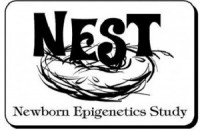 Neurodevelopment and Improving Children’s Health Following Environmental Tobacco Smoke Exposure (NICHES) is a research study at Duke University that you are eligible for as a participant of the NEST Study. NICHES is focused on how the environment in which we live can influence children’s cognitive and behavioral health.
Neurodevelopment and Improving Children’s Health Following Environmental Tobacco Smoke Exposure (NICHES) is a research study at Duke University that you are eligible for as a participant of the NEST Study. NICHES is focused on how the environment in which we live can influence children’s cognitive and behavioral health.
For more detailed information about our study, please visit our study site by clicking HERE.
– – – – – – – – – – – – – – – – – – – – – – – – – – – – – – – – – – – – – – – – – – – – – – – – – – – – – – – – – – – – – – – – – – – – – – – – – – – – – – – – – – – – – – – – – –
ABOUT THE STUDY:
NICHES seeks to understand what causes differences in children’s ability to learn and develop. Due to these differences, some children may not pick up skills as quickly as others. This may help explain why some children are more or less successful in the classroom or at home. In some instances, a child may end up with a diagnosis of Attention Deficit Hyperactivity Disorder (ADHD).
Epigenetics is a new area of research that explains how our genome is influenced by the environment. Past research shows that environmental toxins, like second-hand smoke, and blood lead levels influence children’s brain development during pregnancy as well as their later cognitive and behavioral abilities.
– – – – – – – – – – – – – – – – – – – – – – – – – – – – – – – – – – – – – – – – – – – – – – – – – – – – – – – – – – – – – – – – – – – – – – – – – – – – – – – – – – – – – – – – – –
 OUR INTEREST:
OUR INTEREST:
The NICHES study is interested in determining if the environment can change the way our genome works through so-called epigenetic mechanisms, and therefore influence children’s cognitive and behavioral health. NICHES is specifically interested in if epigenetics contributes to difficulties such as ADHD-like symptoms.
As a participant in the Newborn Epigenetics Study (NEST), you and your child have been observed from the time of pregnancy, to your child’s birth, and now to his/her early development. As your child ages and develops, we are able to measure the changes in his/her cognitive development. It is our hope that you will remain with us as a part of our new study so we can continue learning about epigenetics and child cognitive development.
– – – – – – – – – – – – – – – – – – – – – – – – – – – – – – – – – – – – – – – – – – – – – – – – – – – – – – – – – – – – – – – – – – – – – – – – – – – – – – – – – – – – – – – – – –
FREQUENTLY ASKED QUESTIONS (FAQs)
What is involved in participation?
- We will make an appointment for you and your child to come to Duke’s ADHD Clinic.
- Here, you and your child will complete several tasks.
What will the study tasks include?
- Computer and research staff- directed tasks that measure cognitive and learning abilities
- A saliva and/or blood sample from your child. These samples will be examined to determine epigenetic marks, as well as toxins
What do we get for participating?
- $100 cash or a check for your time, travel, and completion of Visit 1
- Results of the study tasks, if desired
- If there are concerns with your child’s results, we will help identify resources that can assist you with more testing.
– – – – – – – – – – – – – – – – – – – – – – – – – – – – – – – – – – – – – – – – – – – – – – – – – – – – – – – – – – – – – – – – – – – – – – – – – – – – – – – – – – – – – – – – – –
INTERESTED?
If you would like to schedule an appointment, please feel free use the form below to send us an e-mail, or contact one of our study staff members:
Katie Lollie Russell: 919-681-2521, katie.lollie@dm.duke.edu
Alesha Majors: 919-681-2353, alesha.majors@dm.duke.edu
– – – – – – – – – – – – – — – – – – – – – – – –
CONTACT FORM:
– – – – – – – – – – – – – — – – – – – – – – – –

